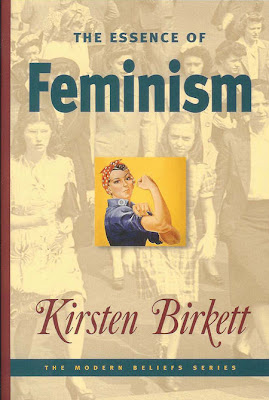The Essence of Feminism
- A Review
Kirsten
Birkett , Matthias Media, 133 pages
Dr Birkett neatly sketches the history of the movement from Simone de Beauvoir through Betty Friedan to Germaine Greer, each with their depressing but influential writings. ‘We want freedom’, was their cry. ‘Give us liberation, from the home, from sexual mores, from everything.’ And when such personal autonomy arrived, the more astute realised it was an ugly can of worms.
The morality of feminism (with abortion as a case study) and its history (with education, work, and the franchise as case studies) are also given the once-over. All this is instructive stuff.
Yet, strangely, there is no index, and the bibliography, of about 80 books, has no annotations to guide the novice reader. And where are the website addresses, like <www.now.org> and <www.thefword.org.uk> for readers to discover what the enemy is thinking and doing?
The author’s original intention was to write about Christianity and feminism, yet she admits this book deals only with the latter topic, that is, until the last couple of pages. This does seem regrettable because feminism alone is a soft target – what believing women (and men) need is help in the formulation and targeting of Christian apologetics. Evangelicals must raze this world’s philosophies, but they must also raise the Christian alternative – exposure of sin without a concurrent disclosure of grace is a truly hopeless enterprise.
Nevertheless,
the book has serious merits. As an
introduction to one of our society’s most deeply-embedded ideologies, it is a
worthy and thought-provoking read.
